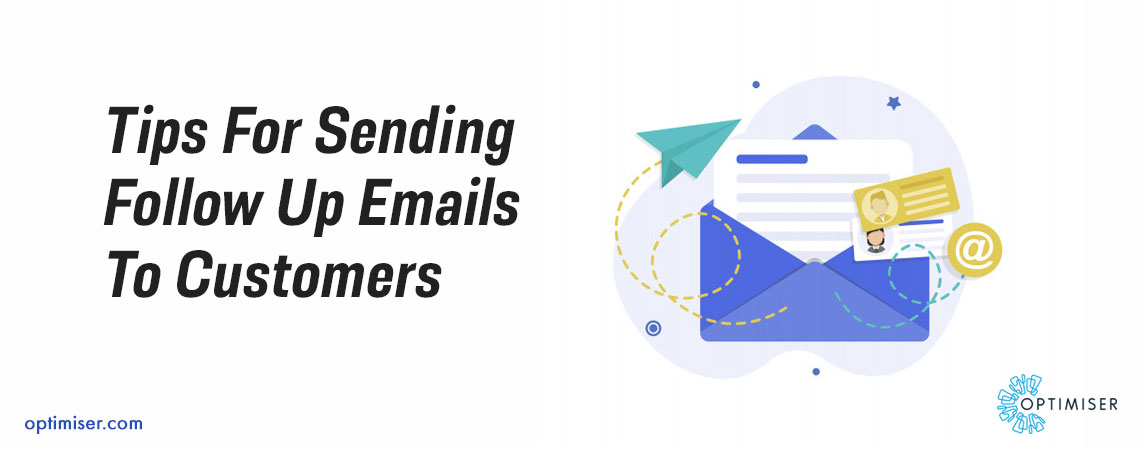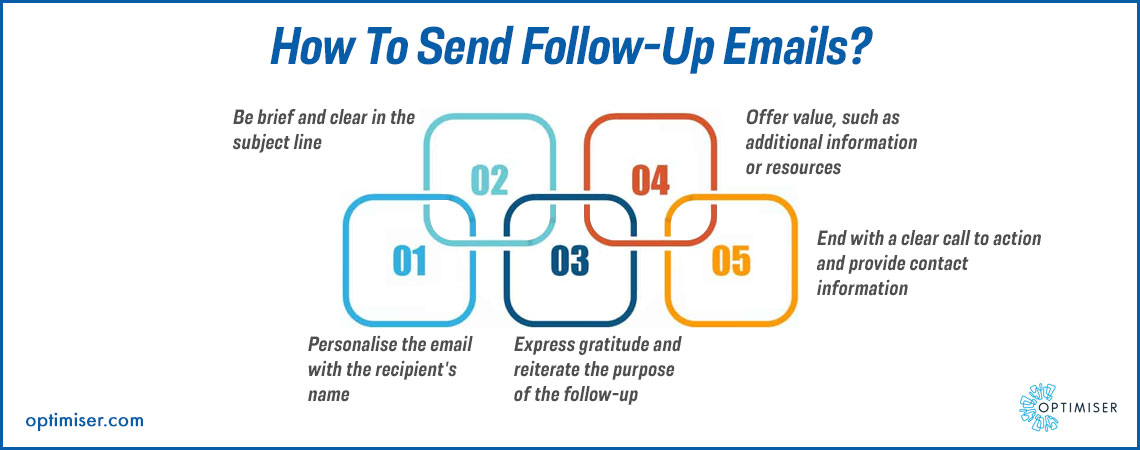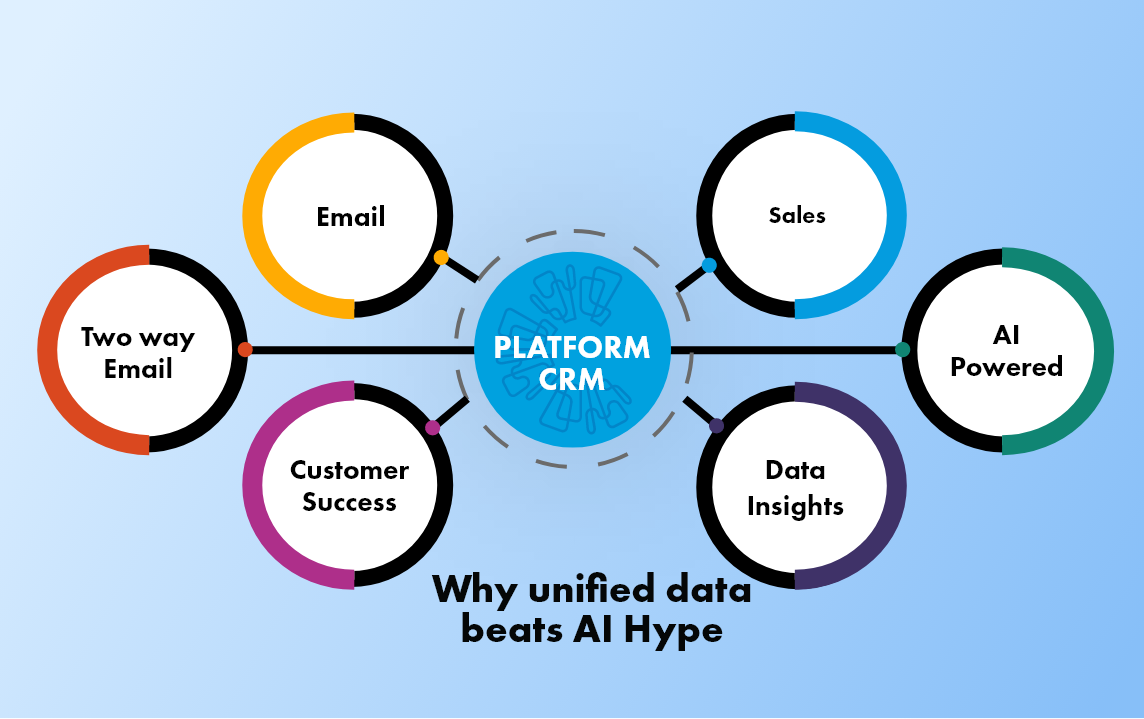
Tips For Sending Follow-Up Emails To Customers
Follow-up emails are a type of emails that are sent after an initial interaction or communication with a customer, prospect, or lead. Their main purpose is to maintain engagement, provide additional information, and move the recipient closer to a desired action, such as making a purchase, booking a service, or registering for an event.
Companies often use email marketing software enterprise to keep track of their customer interactions and send follow-ups consistently. Follow-up emails can take many forms, including:
- Sales follow-ups: Sent after a sales meeting or call, these emails aim to build rapport and encourage the recipient to take the next step towards making a purchase.
- Nurture emails: Sent as part of a larger lead nurturing campaign, these emails provide valuable information and insights to educate and build trust with the recipient.
- Event follow-ups: Sent after an event or webinar, these emails provide attendees with additional information, resources, and offers related to the event.
- Thank you emails: Sent after a purchase or service booking, these emails thank the recipient for their business and provide an opportunity to provide feedback and encourage future interactions.
Why Are Follow-Up Emails Important?
When crafting follow-up emails, it's important to be timely, relevant, and personal. Additionally, it's crucial to ensure that the emails are optimised for deliverability, with a clear subject line, brief and concise content, and a clear call-to-action.

Building Relationships
Email marketing software cost pretty reasonable therefore, they are used to send follow-up emails. Follow-up emails provide an opportunity to build relationships with prospects, leads, and customers. By consistently providing valuable information and resources, businesses can establish themselves as trusted source and foster a deeper connection with their audience.
Driving Conversions
Follow-up emails help move prospects closer to a desired action, such as making a purchase, booking a service, or registering for an event. By providing additional information, addressing any objections, and offering incentives, businesses can increase the likelihood of converting a lead into a customer.
Nurturing Leads
Lead nurturing is the process of building a relationship with a lead over time with the goal of eventually converting them into a customer. Follow-up emails are a key component of lead nurturing, providing a way to consistently engage with leads and educate them on the benefits of a product or service.
Improving Customer Satisfaction
Follow-up emails are an opportunity to thank customers for their business and provide additional resources and support. This can lead to increased customer satisfaction and loyalty, and a higher likelihood of repeat business and positive reviews.
Measuring Success
Follow-up emails can be tracked and analysed to determine their effectiveness and inform future marketing decisions. By measuring open rates, click-through rates, and conversion rates, businesses can gain valuable insights into the success of their marketing campaigns and make informed decisions about future marketing efforts.
How To Send Follow-Up Emails?
Define your goal: Before sending any follow-up email using your email marketing software for e-commerce, it's important to have a clear understanding of what you want to achieve. This could be to provide additional information, address any objections, move the recipient closer to a desired action, or simply maintain engagement.
Know your audience: Understanding the needs, wants, and pain points of your audience are crucial in crafting effective follow-up emails. Consider what information will be most valuable and relevant to your audience and tailor your email accordingly.
Timing is key: The timing of your follow-up email can play a critical role in its success. Make sure to send follow-up emails at a time that is convenient for the recipient and aligns with your goals. For example, if you're trying to move the recipient closer to a purchase, sending a follow-up email within 24 hours of the initial interaction can be effective.

Also Read: Optimiser CRM Solution For Small Businesses To Promote Business Growth
Personalisation: Personalisation can be a powerful tool in increasing the effectiveness of your follow-up emails. Consider using the recipient's name, referencing their previous interactions, or tailoring the content to their specific needs and interests.
Keep it brief: Follow-up emails should be concise, to the point, and easy to read. Avoid using excessive text or complex language and focus on providing value to the recipient.
Include a clear call-to-action: A clear CTA is essential in any follow-up email. Whether you're trying to encourage the recipient to take a specific action, or simply maintain engagement, a clear CTA will help guide the recipient towards your desired outcome.
Optimiser CRM For Email Marketing
Optimiser CRM is a powerful tool for sending follow-up emails. The platform can help you streamline and automate your follow-up email process, making it easier to reach and engage with customers. CRMs often come equipped with automated workflows, which can be used to trigger follow-up emails based on specific actions or events. With stored customer data, you can send your customer personalised emails with customised templates.
Summary
Follow-up emails play a critical role in building relationships, driving conversions, nurturing leads, improving customer satisfaction, and measuring marketing success. When executed effectively, follow-up emails can help businesses achieve their marketing and sales goals and improve the customer experience.

30 days free trial. No credit card required
 One powerful platform
One powerful platform
 Simple to use
Simple to use
 Comprehensive
Comprehensive



